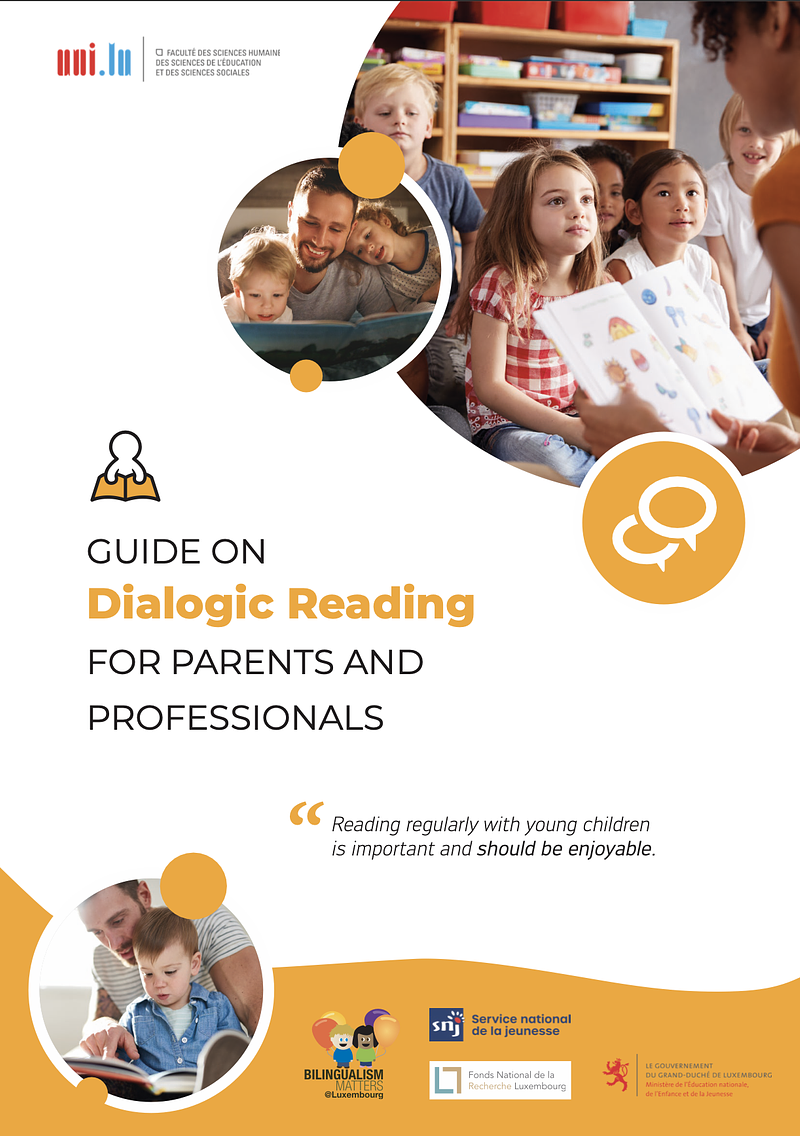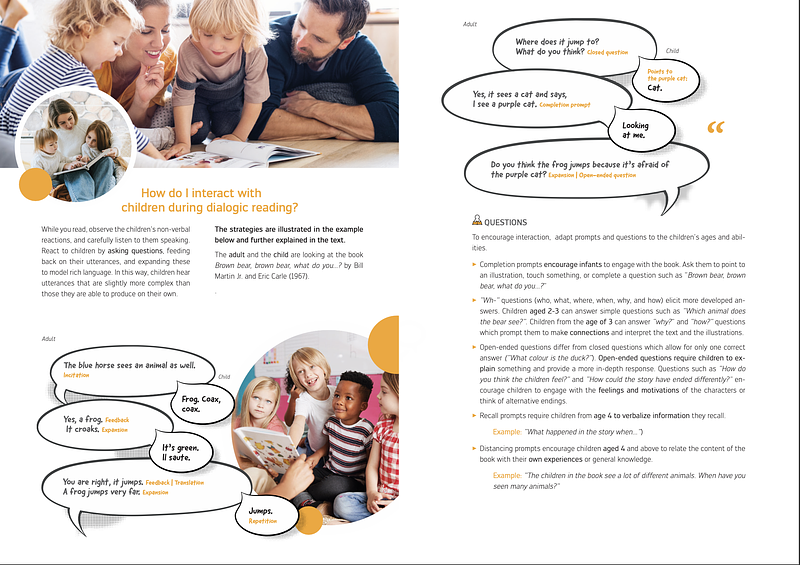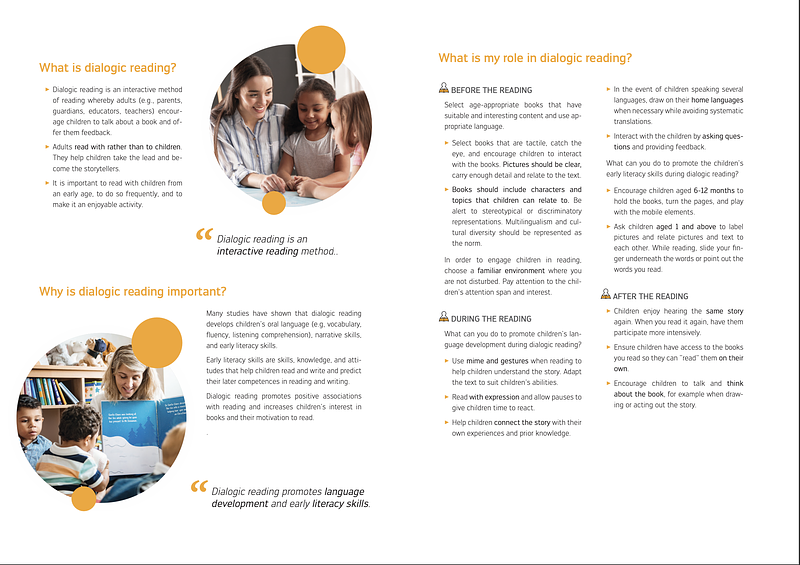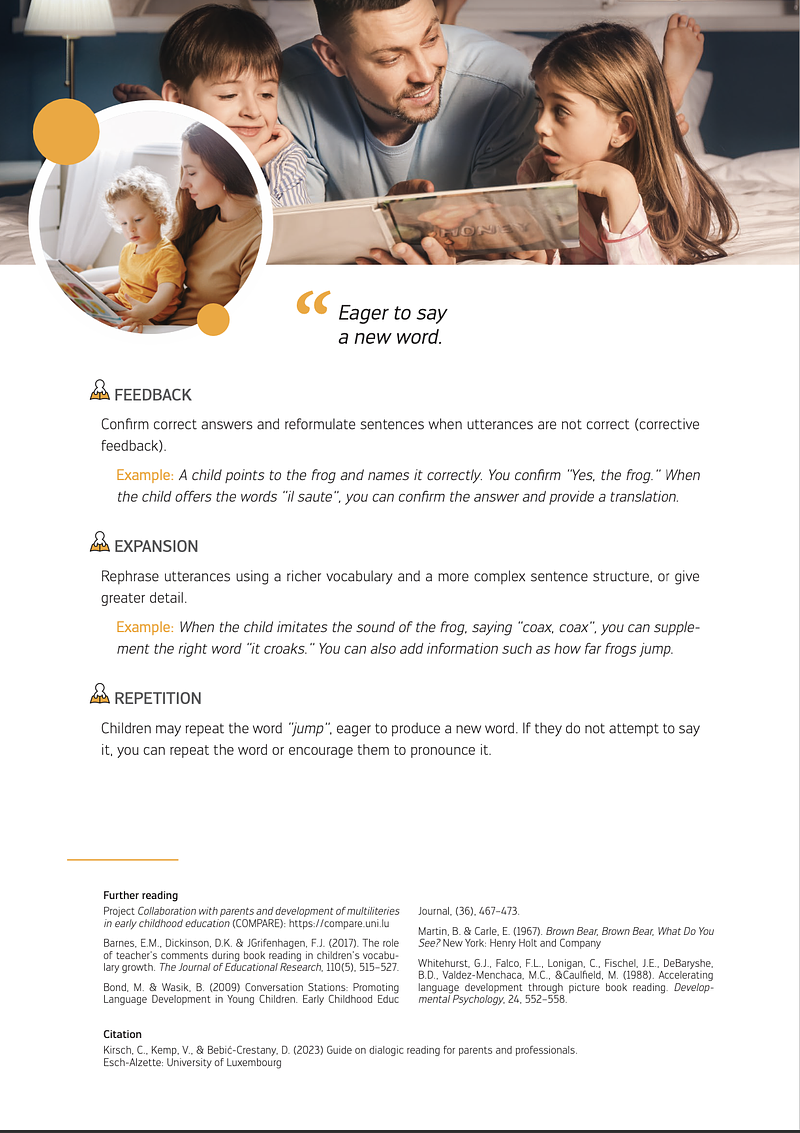
2023-06-26
Frequent and high-quality shared reading promotes language and early literacy skills in one or two languages and predicts children’s later literacy skills and academic achievement. While reading, adults may focus on letters or sounds and encourage children to read. These code-based interactions help develop letter knowledge, phonological awareness and word recognition Others may talk about the meaning of the book, connect it to the child’s experiences and clarify vocabulary. These meaning-based interactions promote the development of oral language and comprehension skills. Dialogic reading is one type of shared reading where adults encourage children to talk about pictured materials and give them feedback. The method has been successfully used in classrooms in many countries, although mainly in English-speaking countries with monolingual speakers or with children learning English. Based on research carried out on shared reading in the project COMPARE in Luxembourg, we produced guides on dialogic reading in English, German, French, Portuguese and Luxembourgish for parents and educators.



